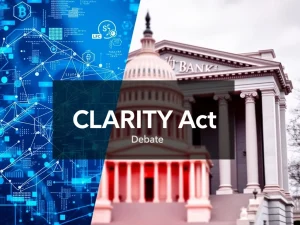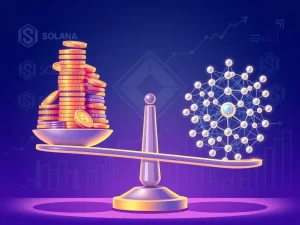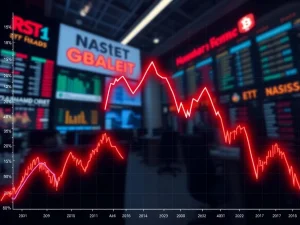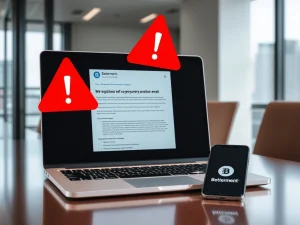Historic SEC Ripple Lawsuit Concludes, Paving Way for Crypto Clarity
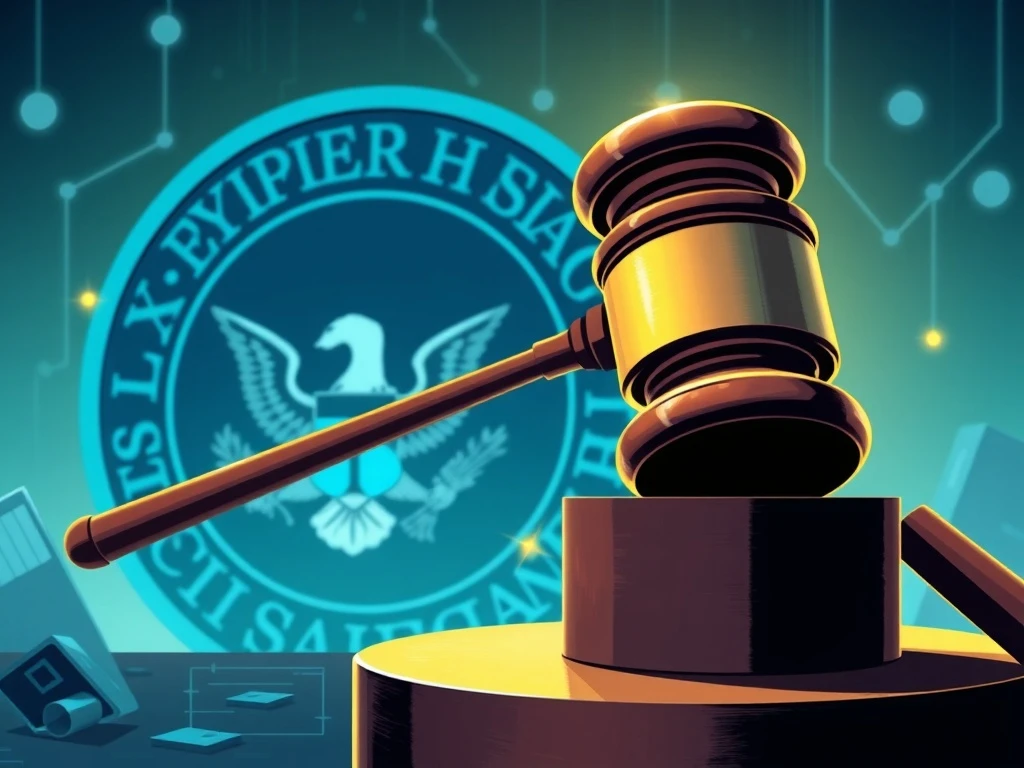
The cryptocurrency world recently witnessed a monumental development. The long-standing SEC Ripple lawsuit finally appears to conclude. This resolution marks a significant turning point for Ripple Labs and the broader digital asset industry. Investors and innovators alike have closely watched this case for years. Its outcome will undoubtedly shape future crypto regulation globally.
Historic Conclusion to the SEC Ripple Lawsuit
A recent court filing confirmed the apparent end of the civil lawsuit. The U.S. Securities and Exchange Commission (SEC) and Ripple Labs jointly stipulated to dismiss their appeals. This filing occurred in the US Court of Appeals for the Second Circuit. It effectively brings the enforcement action involving XRP to a close. Stuart Alderoty, Ripple’s chief legal officer, promptly shared his reaction. He stated on X, “The end…and now back to business.” This sentiment reflects widespread relief within the crypto community. Many believe this development offers much-needed clarity.
The joint dismissal arrived precisely one year after a key ruling. That ruling ordered Ripple to pay $125 million. This payment was part of an enforcement action. The SEC had accused Ripple of using XRP as an unregistered security. The case, therefore, carried immense weight. Its resolution sets a crucial precedent for other digital assets.
The Genesis of a Prolonged Legal Battle
The SEC Ripple lawsuit began in December 2020. The SEC filed a complaint against Ripple Labs and its executives. Specifically, they accused the company of conducting an unregistered securities offering. The SEC claimed that XRP, Ripple’s native digital asset, functioned as an unregistered security. This assertion created significant market uncertainty. Consequently, many exchanges delisted or suspended XRP trading. The case became a focal point for the entire crypto industry. It highlighted the urgent need for clear crypto regulation in the United States.
Ripple Labs consistently denied the allegations. They argued that XRP was not a security. Instead, they maintained it functioned as a currency or a medium of exchange. Furthermore, Ripple emphasized XRP’s utility in its global payments network. This fundamental disagreement formed the core of the legal battle. The stakes were incredibly high for both parties. The outcome would influence how regulators classify digital assets moving forward. Therefore, the industry awaited a definitive ruling.
A Landmark Ruling for XRP and the Market
A pivotal moment occurred in July 2023. Judge Analisa Torres issued a significant ruling. She determined that programmatic sales of XRP to retail investors did not constitute securities offerings. This distinction was crucial. It meant that XRP, when sold on exchanges, was not an investment contract. However, institutional sales of XRP did qualify as securities. This mixed ruling provided a partial victory for Ripple Labs. It also offered a nuanced perspective on digital asset classification. The decision immediately impacted XRP’s price. Many exchanges relisted the asset. This ruling ignited optimism within the crypto community. They hoped for more regulatory certainty.
The July ruling became a beacon for other crypto projects. Many projects face similar regulatory challenges. It provided a potential framework for distinguishing between different types of token sales. Consequently, it suggested that not all digital assets are inherently securities. This legal clarity was widely welcomed. It signaled a possible shift in the SEC’s aggressive enforcement action strategy. The industry began to breathe a collective sigh of relief.
Implications for Ripple Labs and XRP’s Future
The conclusion of the SEC Ripple lawsuit brings immense relief to Ripple Labs. It removes a major legal cloud that lingered for years. This resolution allows Ripple to focus entirely on its core business. The company aims to facilitate cross-border payments. Furthermore, it seeks to expand its blockchain-based solutions globally. The legal battle had undoubtedly diverted resources and attention. Now, Ripple can accelerate its growth initiatives. This includes developing new products and partnerships.
For XRP, the outcome is overwhelmingly positive. The asset now has clearer regulatory standing. This enhanced clarity can boost investor confidence. It may also encourage wider adoption among financial institutions. Ripple’s On-Demand Liquidity (ODL) service, which utilizes XRP, could see increased demand. Moreover, the removal of appeal uncertainty reduces market volatility for XRP holders. This stability fosters a more predictable environment. Ultimately, it strengthens XRP’s position in the competitive digital asset landscape.
Shaping the Landscape of Crypto Regulation
The resolution of this high-profile enforcement action carries significant weight. It has far-reaching implications for broader crypto regulation. The SEC’s decision to drop its appeal suggests a potential shift in its approach. It might indicate a move towards more constructive engagement with the crypto industry. The legal precedent set by the July 2023 ruling could influence future cases. Other digital asset projects may reference this outcome in their own defense. This could lead to a more defined regulatory framework for the entire sector.
However, challenges remain. The U.S. still lacks comprehensive federal legislation for cryptocurrencies. This legal void often leads to regulation by enforcement. The SEC Ripple lawsuit highlighted this issue. Industry participants continue to advocate for clear, tailored rules. They seek regulations that foster innovation while protecting consumers. The outcome of this case may spur legislative action. It could encourage Congress to pass new laws. Such laws would provide much-needed clarity for digital assets.
The Path Forward: What’s Next for Digital Assets
The conclusion of the SEC Ripple lawsuit is a landmark event. It offers a glimmer of hope for the crypto industry. It signals a potential turning point in the ongoing debate over digital asset classification. Ripple Labs can now pursue its vision with renewed vigor. The company can leverage its technology for global financial solutions. Furthermore, XRP can benefit from enhanced market confidence. This stability is crucial for its long-term growth and utility.
Nevertheless, the journey towards clear crypto regulation continues. The industry must remain vigilant. It needs to advocate for sensible policies. The resolution of this case sets an important precedent. It underscores the importance of legal battles in shaping the future of finance. Ultimately, a balanced regulatory approach will unlock the full potential of blockchain technology. It will foster innovation while ensuring market integrity. The crypto community looks forward to a future with greater clarity and growth.

